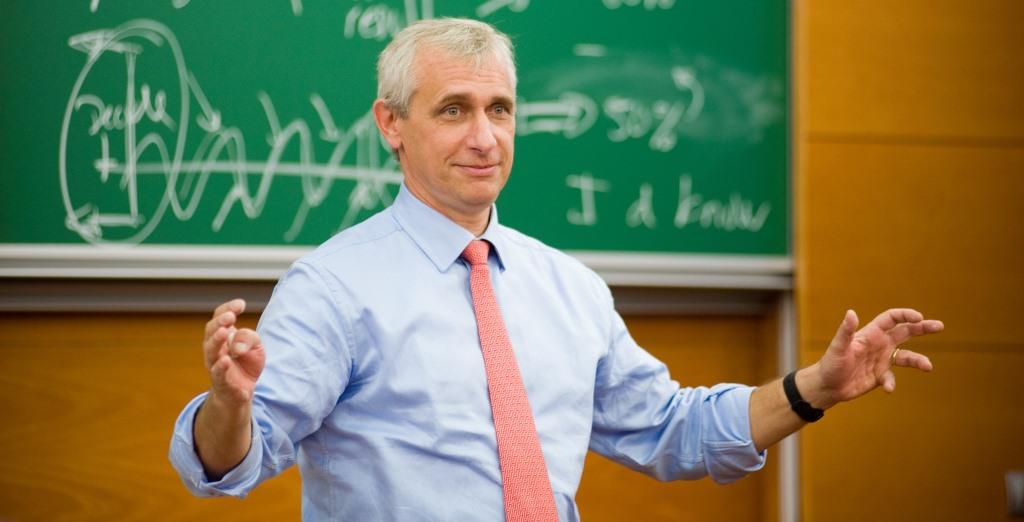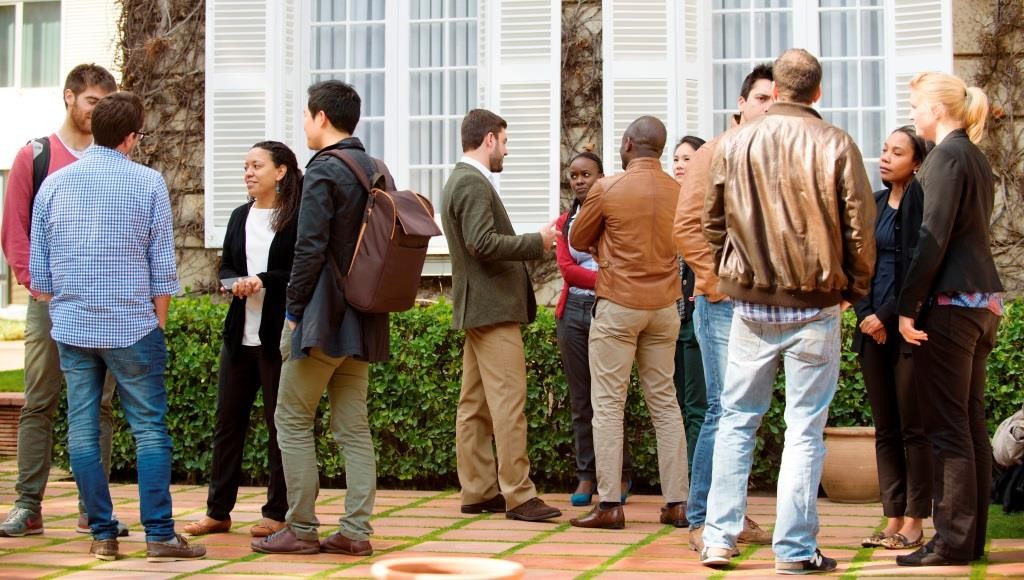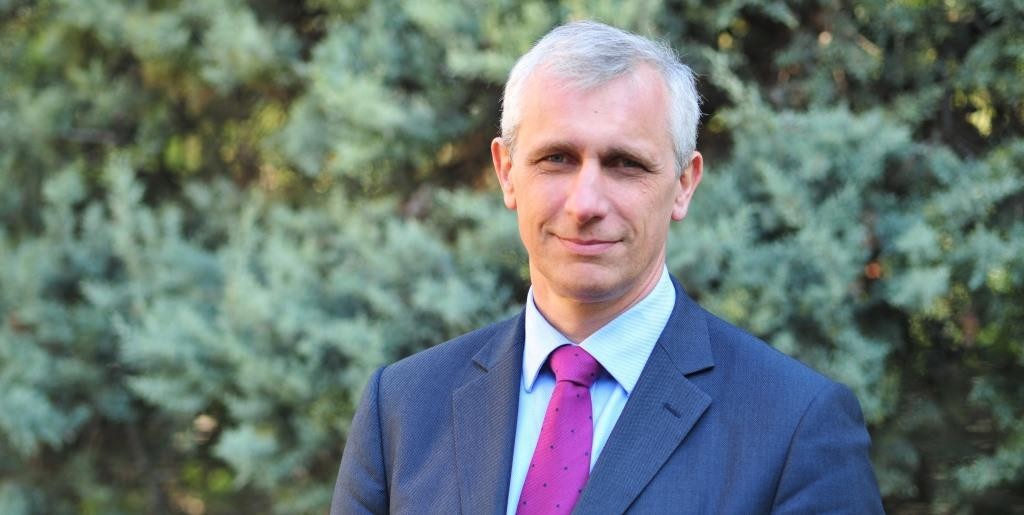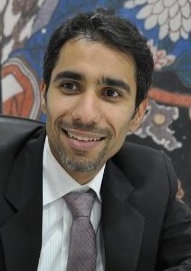Professor Carlos García Pont is a member of IESE’s Marketing Department. He holds an MBA from IESE and a PhD in Management from the Massachusetts Institute of Technology. His work centers on the importance of alliances in understanding competitive strategy, the organizational needs of market-oriented organizations in industrial markets, and subsidiary strategy in global corporations.
What motivated you to become a professor?
I never thought that I would be a professor. I did my MBA back in 1985-87 and planned to go back into the business arena when I finished. I was interviewing for a position as the head a small division within an industrial company, as well as talking to a couple of banks in Madrid. About six months before finishing my MBA, Miguel Angel Gallo, an IESE professor at time, called me to his office. He had been my strategy professor. Prof. Gallo began the conversation about how good it was to be an IESE professor. I had no clue where the conversation was headed, and suddenly he asks, “Would you like to become an IESE professor?” I said “No way.”
I had always taught on the side to make some money while I was a student, but I really wanted to become a businessman. He told me to think about it. We had several conversations over the following couple of months. I finally gave in and asked, “What is being a professor like?” and he told me “You’re going to be famous, you’re going to be rich…you’re going to change the world…” I told him, “You’re lying”and he said, “Yes, I am lying but just a little bit.” In the end, he was right somehow: I’m not rich and I’m not famous, but as a professor, I’m able to change the world—through my students—a little bit.
The biggest challenge for managers will be how to manage people in the right way
I earned my PhD in Boston, where my two eldest kids where born. In a way, when you finish your PhD you think you know a lot, since you have been accepted in a very small community of intellectuals from the most pretentious places. In reality, you are just starting out in the profession and have to everything to learn. It is an interesting trip.
Things worked out fine in the end.
What major trends or challenges do you think we MBAs will face over the next few years?
In my opinion, the biggest challenge for managers will be how to manage people in the right way. Managers achieve objectives and changes organizations through people. This is something that we never pay attention to when we’re young. Trying to create an organization around you, developing a place where people are challenged enough so they enjoy the work while still maintaining a personal life and not making them feel like slaves are major challenges.
In my opinion, good executives are the type of people that, when they leave a firm, a lot of people want to follow them and work for them. This implies that working with these executives is exciting and challenging, otherwise you stay were you are. More importantly, it implies that they are reliable and take care of their employees. It is excitement, challenge, care and performance. Building organizations with these four dimensions is not that easy.
Your areas of research were strategic analysis and competitive analysis. Would you please elaborate on these fields of study?
My work has evolved over the last 20 years. First, I focused on the strategy field, where the argument was that networks of alliances were something that had to be taken into account in “industry analysis.” Nobody did, and without it, we used to argue that Porter’s five forces were incomplete. Then we wrote a couple of papers with Nitin Nohria that argued that the structure of alliances follow a certain kind of scheme, in which you can see some blocks of firms more densely allied than others. The dynamics of those formations were very competitive in the sense that one was imitating the other and so on. This work was done in the automotive, airline and the European banking industries. There was some additional work on the computer industry led by scholars in other places.
Later, I moved a little bit to the organizational side of things, especially with regard to subsidiary strategies, with a focus on Spain. You find a lot of subsidiaries that feel that they can’t answer the fundamental question “What am I doing here?” Of course, they have to fulfill certain objectives and achieve goals in terms of the income statement and other operational objectives, but the denser the network of the multinational becomes, the more you lose your sense of managing a complete business.
We developed a concept of subsidiary strategy with a couple of friends, a couple of IESE PhDs students. The concept was that you have to create two strategies, a dual strategy: the first strategy is the market strategy, or trying to achieve what you’ve been told to achieve. Once you fulfill that, the second strategy is how you are going to add value to the multinational, above and beyond your required deliverables. This might be related to the income statement, manufacturing, or whatever. This implies that you—as a unit, as a subsidiary, as a person, as a department—have to know how to contribute to the other units around you and develop a certain strategy to build that contribution. An “internal” strategy that builds a sense of identity for the people working in that unit, a sense of meaning that goes beyond whatever headquarters has told you to do, but that it contributes to further develop HQ strategy. If you do it within your unit, other units around you, including HQ, may look at your unit not only as a doer of whatever task you’ve been assigned, but as a source of initiative and a creator of competitive advantage for the rest of the organization.
This brings to mind the story of the stone in the dam that doesn’t see where it fits within the bigger picture.
What I am saying is that you need to create your place in the bigger picture. Nobody at the top is going to tell you to be creative, or if they did, it would be the exception to the rule. You’ve got to find your place and decide how and what you are going to contribute to the organization as a whole, beyond your specific role. You can apply this to a subsidiary, to a department or to a waiter in a restaurant: “How might I help the kitchen? What can I improve from my end so that the kitchen has fewer problems?” in addition to doing my normal job.
Every unit has to ask itself, “What can we do beyond the assigned task that we’re expected to do?”
You’ve got to find your place and decide how and what you are going to contribute to the organization as a whole, beyond your specific role
Have you seen examples of companies that do this and do it well?
I’ve seen examples of subsidiaries that do it well in the auto industry. The paper that we wrote with Ignacio Canales and Fabricio Novoa is based on a specific subsidiary that developed this dual strategy.
One subsidiary in the auto industry, in addition to the deliverables it had to achieve, aimed do three additional things: One, supply chain efficiency: “I am in a global value chain, so I have to do things so well that whenever the multinational in Germany wants to do something with somebody, they choose us” or “I am the easiest person in the world to work with.”
Second issue, “I know that the strategic asset of the organization is basically project management, so I have to be the best in this area.” In this case, the worldwide organization actually copied some of the methods of this subsidiary when it came to project management.
Third, “I’ve got to contribute to the strategy of the company.” In this regard, the subsidiary opened a Korean market for the multinational. But, there is something else besides that. If you are able to do all this within the unit, the rest of the organization starts looking at you and says, “This person here might be interesting to talk to.” What you are showing the people around you is that you have opportunities outside the unit. If you only do your task, you are a robot. There are no promotion opportunities for you. You get bored and the organization gets bored and everyone gets bored, and when everyone is bored, you hire boring people and it’s a spiral, everyone gets even more bored. The valuable talent would then leave. You have to create this internal development strategy so people can build their careers on it. You have to be a source of talented people for the whole organization, which is the best thing you can say about any unit or manager.
Have you had a funny situation take place in one of your classes?
A few years ago, some students made a bet among themselves and brought a Mariachi band into my class. There was a singer, a bass player and a couple of guitarists. They had the band enter a few minutes before the end of the class, just when I was closing the case. I started watching them with a very cold look. I was thinking, “What do I do now? I’m closing the case, I’ve got this message to deliver, what do I do? Do I tell these guys to shut up and finish my closing comments, or do I wait until tomorrow?” For those who don’t know me, I may appear angry when I’m deep in thought. I could sense that the students thought I was getting angry, and later they told me they were actually very scared. In the end, I decided to close the case the next day and allowed the band to sing. I led them to the center of the class, got the couple of Mexican students in the class to sing with them, and we all had fun.
That must have been a scene.
It was something interesting to see. The MBA office knew about it, of course. You can’t just walk in a Mariachi band into IESE.
You have to be a source of talented people for the whole organization, which is the best thing you can say about any unit or manager
What are your hobbies?
Trail motor biking and mountain biking, and that’s more or less it.
[Prof. Carlos then showed me a couple of pictures of himself with his two sons and daughter on mountain bikes. The picture was taken in a place called Talamanca, not too far from Barcelona].Your favorite book and/or author?
There are too many to mention! I will always remember a couple of books written by Nitin Nohria: Beyond the Hype and The Arc of Ambition. Dual Strategy by Derek F. Abell is another book I liked, just because the book’s message was straightforward. Business Policy by Antonio Valero, the founder of IESE, and the second book by Juan Antonio Pérez López, whose name I can’t recall right now.
What is your favorite cuisine/ food?
Pan con tomate y jamón ibérico. I believe it is one of the best pleasures in life with a good red wine.
Is there a particular restaurant you enjoy going to in Barcelona?
There is a new place called Alvart on Carrer d’Aribau. The chef is trying to reach Michelin Star status and I think he used to collaborate with the Dos Cielos restaurant. It’s one of those restaurants where you can still go and enjoy modern Catalan food at a reasonable price.
Where would you like to retire?
Wherever my wife wants me to.
Closing comments?
Thank you for the interview. Enjoy the MBA and have fun doing it. You guys have the rest of your lives ahead of you. Remember to change to world a little bit.
I would like to thank Professor Carlos García Pont for his time.
[FADE OUT TO MARIACHI MUSIC]
Until the next issue…









